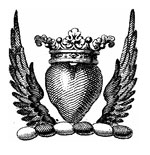
Recalling the Glories of the Faith
VITAL WORKS RECONSIDERED, #26
The Spirit of Catholicism. By Karl Adam.
One can apply various criteria in judging whether a book deserves to be ranked as a Catholic classic. Has it stood the test of time? Does it make an original contribution to Catholic thought? Is the writing everything that fine writing should be, and perfectly suited to the subject? Lastly, the most important consideration of all: Has the Church generally recognized it as a work of enduring value?
While those are all valid and necessary approaches in evaluating a book, my personal criteria of evaluation are somewhat different: How many sentences have I underlined? How many paragraphs have I bracketed? How many pages have I filled with marginalia? How many times have I used the exclamation point?
By those standards, I consider The Spirit of Catholicism by Karl Adam an unquestioned classic, as my thoroughly marked-up copy testifies. While that admittedly is a personal judgment, it is not mine alone, as many Catholic scholars, thinkers, and writers agree.
The twentieth century was not notable for producing a wealth of Catholic classics, which makes Adam’s book a beacon of light in a rather bland literary landscape. With a few exceptions, such as Evelyn Waugh’s Brideshead Revisited and Graham Green’s The Power and the Glory, books written during the so-called Catholic Renaissance of the first half of the last century don’t strike me as having a lot of staying power.
You May Also Enjoy
Not seeing man for what he is would be insanity. We must strive for sanity, which consists in "seeing what is, living in the reality of things."
It is to have performed the obligations of one's vocation, to have used one's gifts and opportunities to give glory to God and serve others.
Among Dostoevsky's Russian Orthodox God's divine names none is more powerful than Beauty, all the more so because Beauty is also an alternative name for Art.

